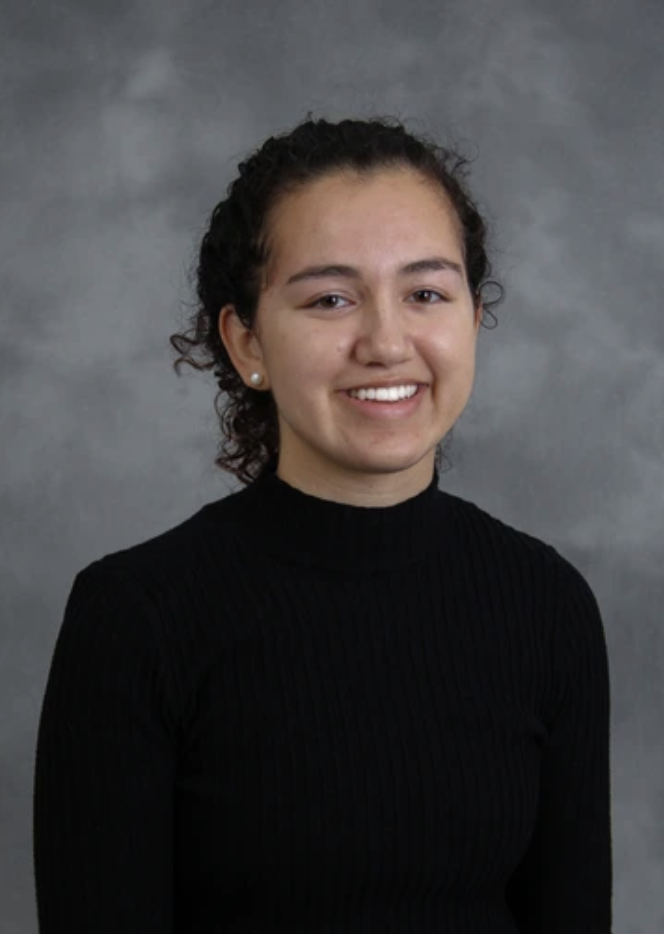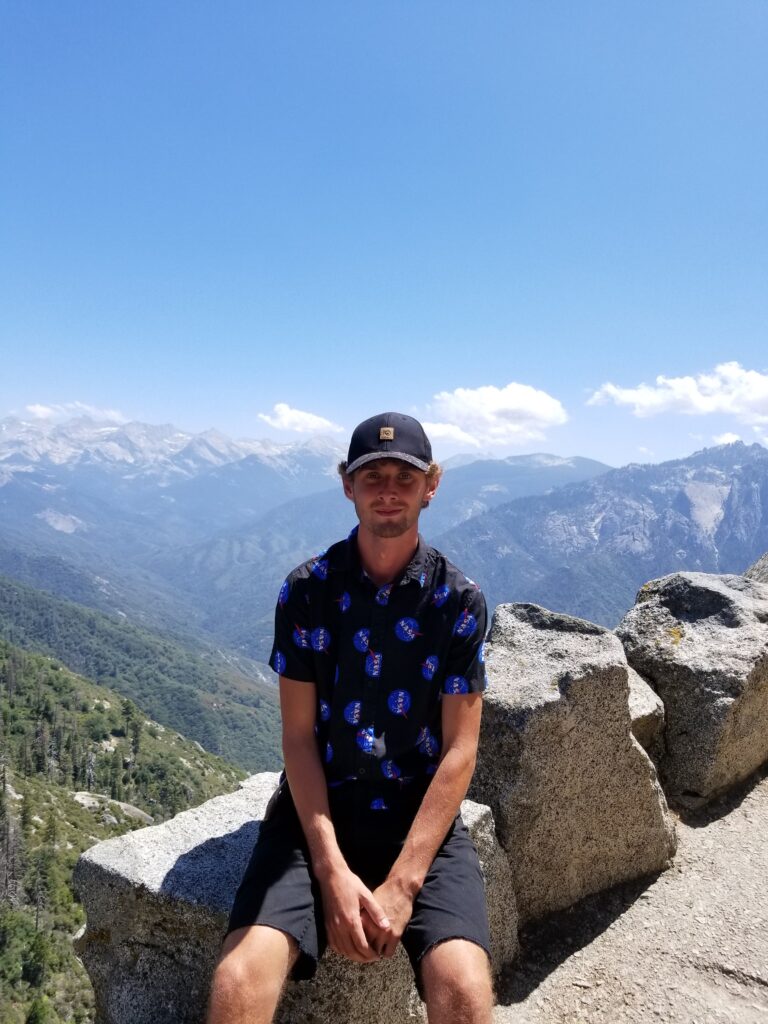AVA HANSON
Majors in Psychology, Spanish and LALACS
“Literature/Interview-Based Suggestions for Navigating Interpreter-Provider Dynamic during Behavioral Health Sessions with Latinx Clients.”
 My LALACS capstone project studies disparities in behavioral healthcare faced by the Latinx community. Originally, I reached out to a company providing behavioral health services to figure out ways that I could help them. They informed me of their difficulties with navigating tele health sessions involving an interpreter along with a client and a provider. They also talked about their desire to improve the success of their treatment and decrease attrition rates among clients. My secondary source research has consisted of analyzing various books and peer-reviewed articles to identify factors involved in treatment seeking behaviors among Latinx clients as well as best practices for providers and therapists conducting behavioral health treatment. My primary source research has involved meeting virtually with several employees from the company, faculty at Gustavus, various interpreters, and an expert researcher/provider in this field to acquire more knowledge about the above mentioned topics. As of right now, the end goal is to create a guide summarizing the acquired information to help the company (or other companies) see more success during their sessions with Latinx clients.
My LALACS capstone project studies disparities in behavioral healthcare faced by the Latinx community. Originally, I reached out to a company providing behavioral health services to figure out ways that I could help them. They informed me of their difficulties with navigating tele health sessions involving an interpreter along with a client and a provider. They also talked about their desire to improve the success of their treatment and decrease attrition rates among clients. My secondary source research has consisted of analyzing various books and peer-reviewed articles to identify factors involved in treatment seeking behaviors among Latinx clients as well as best practices for providers and therapists conducting behavioral health treatment. My primary source research has involved meeting virtually with several employees from the company, faculty at Gustavus, various interpreters, and an expert researcher/provider in this field to acquire more knowledge about the above mentioned topics. As of right now, the end goal is to create a guide summarizing the acquired information to help the company (or other companies) see more success during their sessions with Latinx clients.
Why did you choose to Major in LALACS?
I chose to major in LALACS because I enjoy learning about other cultures and I was drawn to the unique set of courses offered by this area of study.
CARLOS BALBUENA
Major in LALACS; Minors in Statistics and Spanish
“Voter turnout and Latinx outreach: Deconstructing the homogeneity of the ‘Latino vote.'”
 In the realm of politics, the so-called “Latino vote” is more often presented as a singular, voting-bloc. Latinx in the United States have a personal and familiar experience with immigration from Latin America, and this experience leads to ongoing tensions to the cultural and linguistic differences with other ethnicities. Latinx voters living in the United States, can be born either in the United States or abroad, with a shared heritage to any Latin American nation. As a result, Latinos living in the United States undergo diverse processes of adaptation with many levels of assimilation, but reaffirm their identity based on their personal ties to provide a sense of community and belonging to their social settings. Once we start to understand these vast and deep differences, we can transfer this to deconstruct the “Latino vote” and understand that Latinx political identity is multivariate that needs to be intercepted at the intersection of power, collective identity, and place.
In the realm of politics, the so-called “Latino vote” is more often presented as a singular, voting-bloc. Latinx in the United States have a personal and familiar experience with immigration from Latin America, and this experience leads to ongoing tensions to the cultural and linguistic differences with other ethnicities. Latinx voters living in the United States, can be born either in the United States or abroad, with a shared heritage to any Latin American nation. As a result, Latinos living in the United States undergo diverse processes of adaptation with many levels of assimilation, but reaffirm their identity based on their personal ties to provide a sense of community and belonging to their social settings. Once we start to understand these vast and deep differences, we can transfer this to deconstruct the “Latino vote” and understand that Latinx political identity is multivariate that needs to be intercepted at the intersection of power, collective identity, and place.
Why did you choose to Major in LALACS?
I chose to major in LALACS because it helped me navigate what it really means to be Latinx in the United States and abroad. In addition, courses in LALACS made me realize that I want to be a voice for my community to reach solidarity across all communities.
KATIE ORCUTT
Majors in Biochemistry and Molecular Biology; Minors in LALACS & Chemistry
“Health disparities in the Latinx community through the context of the Covid-19 pandemic.”
The Latinx community and other minority communities have been hit much harder by the pandemic than the general population. Specifically, in Minnesota, the Latinx community has made up a disproportionate number of confirmed cases which has drawn attention to understanding why this unequal distribution exists. This project identifies factors that have resulted in a heavier burden caused by the Covid-19 pandemic in minority communities. These factors include immigration status, levels of and access to healthcare, and workplace exposures. Additionally, factors that existed in the healthcare system before the pandemic have been magnified during the Covid-19 health crisis.
Why did you choose to minor in LALACS?
I chose to minor in LALACS because I was drawn to the interdisciplinary approach to a language and cultures that I had spent time learning about in my Spanish classes. I also appreciated being able to pick classes and topics that aligned with my interests.
VANESSA RAMÍREZ-GAVILÁN
Majors in Spanish and LALACS; Minors in Peace Studies; Gender, Women & Sexuality Studies
“The Humanitarian Crisis in Colombia.”
 My project is about the humanitarian crisis in Colombia. The Security Forces of the state has neglected the civilians and they have to cope with the violence from the perpetrators. This project focuses on coping mechanisms displayed by the communities in Bojayá and El Salado. We analyze the violent acts to which these communities have been subjected, according to the populations that have been most affected (I.e. children, Afro-Colombian and indigenous individuals in Bojayá, adult men in El Salado). Furthermore, we explore their relationship with the paramilitary and guerrilla groups, as well as the Colombian state. These communities reshape themselves after emblematic cases of violence that accumulate multiple forms of victimization: massacres, assassinations, and forced disappearances and displacements.
My project is about the humanitarian crisis in Colombia. The Security Forces of the state has neglected the civilians and they have to cope with the violence from the perpetrators. This project focuses on coping mechanisms displayed by the communities in Bojayá and El Salado. We analyze the violent acts to which these communities have been subjected, according to the populations that have been most affected (I.e. children, Afro-Colombian and indigenous individuals in Bojayá, adult men in El Salado). Furthermore, we explore their relationship with the paramilitary and guerrilla groups, as well as the Colombian state. These communities reshape themselves after emblematic cases of violence that accumulate multiple forms of victimization: massacres, assassinations, and forced disappearances and displacements.
ZACHARY JOHNSON
Majors in LALACS and Political Science
“The Humanitarian Response to the 2010 Haitian Earthquake: An Unnatural Disaster.”
Haiti is a nation that has suffered from extreme poverty, poor political institutions and natural disasters for most of its history. Following the earthquake near the capital, Port au Prince, on 12 January, 2010, the already historic problems were heavily illuminated and expanded. The international community rallied behind Haiti with billions of dollars worth of foreign assistance with the hope to provide immediate relief and to eventually “build back better,” but the results do not point to the conclusion that these goals were met. Lack of trust, coordination, local input and knowledge, and accountability hampered the responses of foreign governments, nongovernmental organizations, and international institutions such as the United Nations. The issues the nation has faced since its founding in 1804 and lackluster humanitarian response has caused a situation in which a natural phenomena has become an unnatural disaster.
PAIGE PATTERSON
Majors in Political Science, Spanish and LALACS
“Latinx Minnesota: Bilingual Community Resources”
In consultation with the Mankato Chapter of the ACLU (American Civil Liberty Union) I created three different pamphlets with both English and Spanish translations to provide basic information on the U.S. system of government, Immigrant Services, and Latinx Community resources.
Why did you choose to Major in LALACS?
I had taken many of the LALACS classes and had become very interested in the culture and history of the Latinx community, so I decided to become a major to pursue further study on the topics!
MARISA GUSTAFSON
Majors in Spanish Education and LALACS; Minor in Coaching
“Politics Beyond the Grave”
My LALACS Senior Thesis was a creative project in which I wrote a series of fictional letters from the perspective of Cristina Fernández de Kirchner and Eva Perón as penpals. The dialogue between these two important Argentine figures discusses the role of women in their country, their famous husbands, their policies and scandals.
CONNER CRESS
Majors in Communications and LALACS; Minors in Spanish and Coaching Management
“Political Rhetoric: Both sides of Puerto Rican Statehood”
I am analyzing arguments in favor of and agains statehood in the case of Puerto Rico through the lens of political rhetoric.




